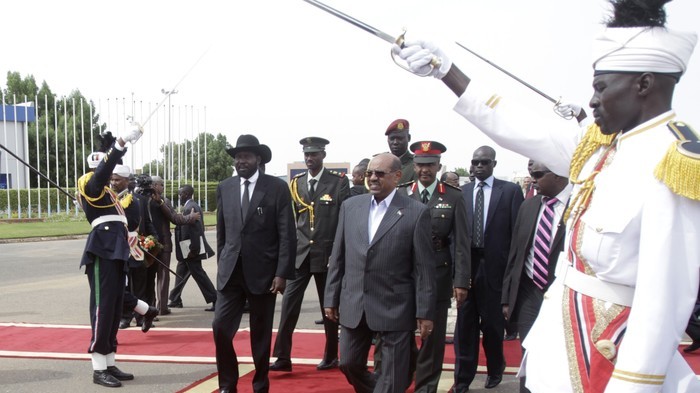South Sudan president regrets secession from Khartoum
November 2, 2017 (JUBA) – South Sudan president Salva Kiir has regretted his country’s secession from neigbouring Sudan, saying most of people were forced to follow the decisions of the majority.

He added, “The fact that South Sudan broke away from Sudan was not really the most choice of everybody, but the majority when they decide in a democratic situation, people have to go with this”.
The South Sudanese leader said he was in Khartoum in respond to invitation extended by his counterpart for discussions over pending issues, including oil transit fees, border security and the South Sudanese refugees who fled the civil war into neighbouring Sudan.
President Kiir’s remarks sparked heated debates on social media, with government critics calling him to resign since he has regretted the decision of the majority of the people who voted for secession.
“This president [Kiir] should have resigned and indeed he should. David Cameroon resigned when majority of the Britons chose to leave European and Theresa May, who and her party were supporting Brexit took over”, wrote one commentator.
Other Social media commentators interpreted the remark to mean submission and an attempt to reunite the two countries after allegedly failing to run the country to the peoples’ expectations.
“What we saw there can make Dr John Garang turn from his grave. Salva Kiir feels scared when he is in Khartoum. He is not intellectually savvy and thinks he will be shot right away. No one can feel sorry for the referendum we did to break away accepts him. If he’s submitting to Omar and give South Sudan back, we are not ready for it, instead he should step down because he failed”, wrote Victor Machot, another south Sudanese commentator.
Former South Sudan legislator, Wol Deng Atak said he could not believe hearing President Salva Kiir in audio speaking to President Al Bashir of Sudan at closed session in Khartoum about his regret.
“We have now known what President Kiir says in private when he meets world leaders. The audio brings out crystal clear the character of President Salva Kiir who to tend to disown his own shadow when things go wrong,” wrote the former lawmaker.
“Now that he has failed the country, the succession wasn’t the better choice, but a choice imposed on him by the majority votes”.
Since its independence, South Sudan has relied on oil for all income—a situation that has significantly compounded ongoing political and economic instability due to the fall in crude oil prices.
According to South Sudanese officials, production in the past reached as high as 350,000 bpd but fell after a dispute with Sudan over fees for pumping South Sudan’s crude through Sudan’s export pipeline, which led South Sudan to halt production in 2012.
South Sudan got the lion’s share of the oil when it split from Sudan in 2011, but it’s only export route is through Sudan, giving Khartoum leverage and leading to ongoing pricing disputes.
(ST)
